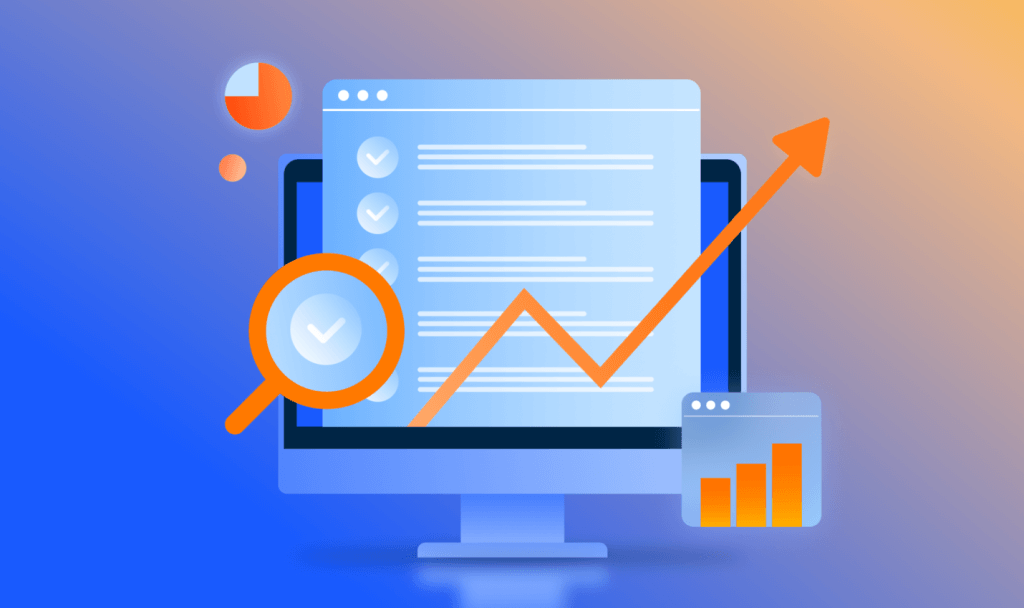Market research plays a vital role in understanding customers, identifying market trends, and gaining a competitive edge. In today’s digital age, market research tools have become indispensable for businesses looking to make data-driven decisions. This article explores the importance of market research and highlights various types of tools available, along with their benefits and tips for effective usage.
Types of Market Research Tools

Surveys
Surveys are a popular and versatile market research tool. They enable businesses to collect feedback, opinions, and preferences from a wide range of respondents. Online survey platforms like SurveyMonkey and Qualtrics offer user-friendly interfaces, customizable questionnaires, and robust data analysis features. Surveys can be distributed through various channels, such as email, websites, and social media, allowing businesses to gather valuable insights efficiently.
Focus Groups
Focus groups involve gathering a small group of individuals representing the target market to discuss specific topics or products. These sessions provide qualitative feedback, opinions, and insights that may not be easily captured through quantitative methods. Focus group discussions facilitate interactive conversations and allow businesses to delve deeper into customer perspectives, motivations, and preferences.
Online Analytics Tools
Online analytics tools, such as Google Analytics, provide comprehensive data about website traffic, user behavior, and conversions. These tools track metrics like page views, bounce rates, and conversion rates, enabling businesses to understand how users engage with their websites. By analyzing this data, businesses can optimize their online presence, improve user experience, and drive conversions.
Social Media Monitoring
Social media platforms offer a wealth of information about customer sentiments, brand mentions, and industry trends. Monitoring tools like AIM Insights and Brandwatch allows businesses to track and analyze social media conversations relevant to their brand. These tools provide real-time insights, enabling businesses to identify opportunities, respond to customer feedback, and manage their online reputation effectively.
Customer Feedback Platforms
Customer feedback platforms like Zendesk and Usabilla help businesses collect and analyze customer feedback across various touchpoints, including websites, mobile apps, and customer support interactions. These platforms provide insights into customer satisfaction, identify areas for improvement, and assist in measuring the impact of changes implemented based on customer feedback. Utilizing such tools helps businesses enhance customer experiences and build long-term relationships.
Competitive Intelligence Tools
Competitive intelligence tools like SEMrush and Buzzsumo help businesses gather data on competitors’ online strategies, keyword rankings, and content performance. These tools provide valuable insights into competitors’ organic and paid search strategies, content marketing efforts, and social media engagement. By analyzing this information, businesses can identify gaps in their strategies and develop countermeasures to outperform competitors.
Benefits of Using Market Research Tools
Data-driven Decision-making
- Market research tools provide businesses with accurate and up-to-date data, enabling them to make informed decisions. By basing decisions on factual information rather than assumptions, businesses reduce risks, optimize resource allocation, and improve overall business performance. Whether it’s launching a new product, entering a new market, or refining marketing campaigns, market research tools help businesses make strategic choices backed by reliable insights.
Targeted Marketing Campaigns
- Market research tools help businesses understand their target audience’s preferences, motivations, and pain points. Armed with this knowledge, companies can create highly targeted marketing campaigns that resonate with their customers. By tailoring messages, offers, and advertisements to specific customer segments, businesses improve the effectiveness of their marketing efforts, increase engagement, and drive conversions.
Improved Product Development
- Market research tools provide valuable feedback during the product development process. By collecting customer insights, businesses can identify areas for improvement, assess demand for new features, and validate product concepts. This customer-centric approach ensures that businesses develop products that meet market needs, resulting in higher customer satisfaction and a greater chance of success in the market.
Competitive Advantage
- In a competitive market, gaining a competitive edge is crucial for sustained success. Market research tools provide insights into competitors’ strategies, enabling businesses to identify opportunities and differentiate themselves. By understanding customer perceptions, competitors’ strengths, and weaknesses, businesses can position themselves strategically and create unique value propositions that resonate with customers.
Choosing the Right Market Research Tool

When selecting a market research tool, it’s important to consider several factors to ensure it aligns with your business objectives and budget. Here are some key considerations:
Define Research Objectives
- Clearly define your research objectives to identify the type of data you need to collect. Determine whether you require qualitative or quantitative insights, specific demographic information, or competitor analysis. This clarity will help you choose the right tools that align with your research goals.
Consider Budget and Resources
- Evaluate your budget and available resources for market research. Some tools may require subscriptions or additional fees, while others offer free or freemium versions. Consider the cost-benefit ratio and ensure that the chosen tool provides the necessary features within your budget.
Evaluate Features and Functionality
- Carefully assess the features and functionality offered by market research tools. Consider factors such as ease of use, customization options, data visualization capabilities, integration with other platforms, and support services. A tool that suits your business requirements and provides a seamless user experience will enhance efficiency and productivity.
Check User Reviews and Ratings
- Research and read user reviews and ratings of different market research tools. Insights from other users can provide valuable information about the tool’s reliability, accuracy, and customer support. Take note of both positive and negative feedback to make an informed decision.
AIM Research: The Best Market Research Tool

AIM Research is a survey tool that enables businesses to create and distribute customized surveys. It offers a user-friendly interface, robust data analysis features, and integration options with other tools. AIM Research helps businesses gather valuable feedback and opinions from a wide range of respondents.
Tips for Effective Market Research
Set Clear Goals
- Define clear research goals and objectives before starting any market research project. Clearly outline what you want to achieve and the specific insights you need to gather. This clarity will guide your research efforts and ensure you collect relevant and actionable data.
Use a Combination of Research Methods
- Don’t rely on a single market research method. Instead, use a combination of qualitative and quantitative methods to gather comprehensive insights. This could include surveys, focus groups, interviews, and data analysis from various sources. By triangulating your data, you’ll obtain a more holistic understanding of your target market.
Ensure Representative Sample
- When conducting market research, it’s essential to ensure your sample is representative of your target audience. Random sampling, stratified sampling, or quota sampling techniques can help ensure diversity and accuracy in your data. This representative sample will provide insights that reflect the broader population.
Analyze and Interpret Data Accurately
- Collecting data is only the first step; the real value lies in analyzing and interpreting that data accurately. Use appropriate statistical techniques, data visualization tools, and qualitative analysis methods to derive meaningful insights. Consider seeking professional help if needed to ensure accurate and reliable analysis.
Case Studies with Record-Breaking Insights
Case Study 1: Netflix’s Data-Driven Success
Netflix, the global streaming giant, has built its empire on deep market research and analytics. By leveraging tools like AI-powered recommendation systems and user behavior analytics, Netflix customizes content recommendations and optimizes its library.
A prime example is the launch of House of Cards. Before greenlighting the show, Netflix analyzed vast amounts of viewer data, identifying that audiences liked political dramas and Kevin Spacey’s previous works. This predictive analytics approach resulted in a record-breaking success, proving that data-driven decision-making can lead to phenomenal results.
🔥 “Data beats opinions. The companies that truly understand their customers are the ones that win.” — Reed Hastings, Co-founder of Netflix
Case Study 2: Airbnb’s Pivot with Market Research
When Airbnb first started, growth was slow. The founders realized that understanding user behavior was crucial. By conducting extensive surveys and analyzing customer feedback, they discovered that high-quality images significantly influenced booking decisions.
They then implemented a professional photography service for hosts, resulting in a 2X increase in bookings. This small but data-backed tweak revolutionized their business and helped Airbnb become a global hospitality leader.
🏡 “Customer insights are the compass that guides product innovation.” — Brian Chesky, CEO of Airbnb
Case Study 3: Coca-Cola’s “New Coke” Failure & Recovery
In the 1980s, Coca-Cola attempted to replace its original formula with “New Coke” after conducting taste tests. However, they overlooked a critical factor—consumer sentiment and brand loyalty. The backlash was swift, forcing Coca-Cola to revert to its classic formula.
This failure highlighted the importance of holistic market research, which should consider not just data but also emotional and cultural connections.
🥤 “Numbers tell part of the story, but emotions drive consumer behavior.” — Seth Godin, Marketing Expert
Case Study 4: Spotify’s Personalized Playlists
Spotify’s success is largely due to its ability to use market research tools and AI-driven analytics. The introduction of Discover Weekly, which uses listening behavior to recommend songs, led to a 5 billion+ streams milestone within the first year.
Spotify continues to refine its recommendation engine through machine learning and user feedback, setting the gold standard for personalized digital experiences.
🎵 “Data is the new oil, and personalization is the refinery.” — Daniel Ek, CEO of Spotify
Influencer Insights on Market Research
✅ Neil Patel (@neilpatel)
“Market research isn’t an expense—it’s an investment that pays off in customer loyalty and business growth.”
✅ Rand Fishkin (@randfish)
“Competitor analysis is not about copying, but about finding the gaps they missed and owning those opportunities.”
✅ Ann Handley (@annhandley)
“Know your audience so well that your marketing feels like a conversation rather than a sales pitch.”
✅ Gary Vaynerchuk (@garyvee)
“Listen to your audience. They tell you everything you need to know about how to win in business.”
Conclusion
Market research tools have revolutionized the way businesses gather insights, make decisions, and stay competitive in the market. Understanding customer needs, identifying market trends, and analyzing competitors’ strategies are critical for business success. By utilizing the right market research tools and following effective research practices, businesses can gain a deeper understanding of their target audience, make informed decisions, and drive growth.
If you’re ready to take your market research to the next level and gain a competitive advantage, consider requesting a demo from AIM Technologies. Our advanced market research platform offers powerful features and intuitive analytics tools to help you gather valuable insights and make data-driven decisions.
FAQs
What is market research?
- Market research is the process of gathering and analyzing data to understand customer preferences, market trends, and competitor strategies. It helps businesses make informed decisions and develop effective marketing strategies.
How can market research tools benefit businesses?
- Market research tools provide valuable insights that enable businesses to understand their customers better, identify market trends, and gain a competitive advantage. These insights help in making data-driven decisions and optimizing business strategies.
Are market research tools expensive?
- Market research tools vary in cost, ranging from free options to subscription-based models. There are tools available for businesses of all sizes and budgets. It’s important to assess the features and functionalities of different tools to find the one that best fits your requirements and budget.
Can market research tools be used for competitive analysis?
- Yes, market research tools can be used for competitive analysis. They provide insights into competitors’ strategies, strengths, weaknesses, and customer perceptions. These insights help businesses identify market gaps, refine their strategies, and gain a competitive edge.
What are some popular market research tools?
- Some popular market research tools include AIM Research, SurveyMonkey, Qualtrics, SEMrush, Buzzsumo, Mention, Hotjar, SimilarWeb, and Brandwatch. These tools offer various features for data collection, analysis, and competitor research.




